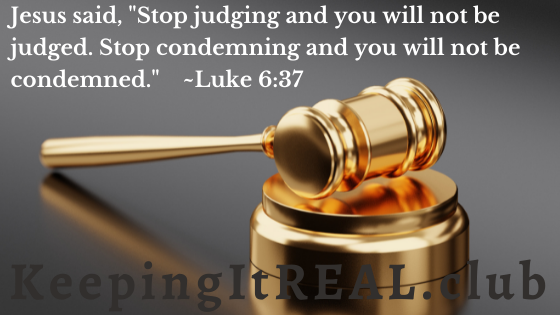Reading I: 1 Samuel 26:2, 7-9, 12-13, 22-23
Reading II: 1 Corinthians 15:45-49
GOSPEL: Luke 6:27-38
One weekend, a preacher got up for the sermon and asked how many people had forgiven their enemies? About half the congregation raised their hands. He paused for a moment, and then repeated the question. This time about 25% raised their hands. After slowly asking the question for a third time, there was only one lady with her hand up. This little old lady – Mrs. Nelson – was 93 years old. The preacher told her just how unusual she was, and asked her to come up and share with everyone her secret on how to not have an enemy in the world. The sweet little old lady tottered up to the microphone and said, “It’s easy – I just outlived all of those bad people.”
All of the readings this weekend center on unconditional forgiveness. In the first reading, we hear David forgive his mortal enemy. And let’s face it – David didn’t always make the best decisions. Yet we see him demonstrate mercy and compassion – a model for us today.
The second reading reminds us that sometimes our impulse is to respond with revenge, but Paul tells us that we are to live lives that demonstrate love and mercy to all.
Similarly, the Gospel tells us how we are to be in relationship with other people. Jesus reminds us that the amount of love and compassion we show others should be the same amount that we expect God to show for us.
[Tweet theme=”tweet-box-shadow”]Jesus reminds us that the amount of love and compassion we show others should be the same amount that we expect God to show for us.[/Tweet]
Three-Part Message
The message is for us to do three things: pray, love, and live the Golden Rule.
1. Pray for the strength to forgive others.
It is our weakness that prevents us from forgiving others. Although the Church teaches forgiveness, the society we’ve created today sends a message that people shouldn’t be forgiven easily. Is it any wonder we don’t want to let go of the hurts that happen to us?
Debbie Morris, a surviving victim of Robert Willie (of Dead Man Walking), said, “Justice didn’t do a thing to heal me. Forgiveness did!” She points out a valuable lesson. When we forgive, it is another step towards healing. All of the justice and all of the anger in the world won’t lead to healing – but forgiveness is a necessity in the healing process.
2) Love your enemies
This is difficult news if you have a “laundry list” of people you consider enemies. A fundamental issue in this gospel is that if you love your enemies, then you don’t actually have enemies. It’s the reason we are called to pray and work towards reconciling with everyone.
Perhaps in your mind, you think such people don’t deserve your love. But remember that love and forgiveness have a way of coming back to us. If we love – especially the difficult people in our lives – we are demonstrating the mercy and love that we hope to receive from God.
3) Live by the Golden Rule
“Do unto others as you would have them do unto you.” There have been a few times (more than I care to remember) in my life when I have acted unkind or even brutal in my relationships with my family and friends. There have also been times when I was treated worse than I should have been. The reality is that, when we look at the broad view of life, we tend to be treated in the same manner that we treat others.
Following the Golden Rule means we lead by example. We treat others with kindness and mercy, knowing that this is what is expected from a Christian. Do that, and we will usually get back whatever it is that we give.
So if we want God and others to treat us with kindness and mercy, then it only makes sense to offer the same to them. Maybe we’ll be able to say that we are without a single enemy before we’re in our nineties!
Life Applications:
Who are your “enemies?” How do you feel about them?
How hard is it to love your family all the time?
How do you generally treat people? Is it reflected back to you?
Check out the REAL Word Podcast for the 7th Sunday in Ordinary Time (Cycle C):
Original article by Deacon Jim Corder, 2004-2022.

This work is licensed under a Creative Commons Attribution 4.0 International License.
